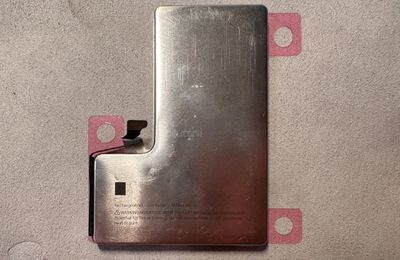Make iPhone 16 Batteries in India, Apple Tells Component Suppliers
Apple has told component suppliers it wants iPhone 16 batteries to be made in India, as part of the company's efforts to diversify its global supply chain and reduce its reliance on Chinese manufacturing.

The
Financial Times reports that Apple has informed battery suppliers including China's Desay and Taiwan's Simplo Technology of its preference to have batteries for next year's iPhone made in India, and has encouraged the manufacturers to establish new factories there or scale up production at existing sites for future orders.
"If all goes well with iPhone 16 battery supply, Apple plans to move more iPhone battery production to India," said one of the people close to Apple who spoke to FT.
Apple already works with Foxconn, Pegatron, and Tata (new owner of Wistron) to manufacture iPhones in India, with Foxconn handling 75 to 80 percent of the device assembly. Foxconn has invested more than $500 million in India to ramp up its manufacturing capabilities.
Apple analyst Ming-Chi Kuo believes that 12 to 14 percent of global iPhone shipments are made in India, with that proportion to increase to 20 to 25 percent by 2024. Introductory production on the standard iPhone 17 will start in India in the second half of 2025, according to Kuo, marking the first time that Apple begins development of a new iPhone outside of China.
In addition to allowing Apple to move manufacturing away from China, increasing production in India provides Apple with an opportunity to strengthen its relationship with the Indian government. India is a key market for Apple due to growing demand for Apple products in the country.
Popular Stories
Apple today introduced its first two physical products of 2026: a second-generation AirTag and the Black Unity Connection Braided Solo Loop for the Apple Watch.
Read our coverage of each announcement to learn more:Apple Unveils New AirTag With Longer Range, Louder Speaker, and More
Apple Introduces New Black Unity Apple Watch BandBoth the new AirTag and the Black Unity Connection Braided...
Apple today confirmed to Reuters that it has acquired Q.ai, an Israeli startup that is working on artificial intelligence technology for audio.
Apple paid close to $2 billion for Q.ai, according to sources cited by the Financial Times. That would make this Apple's second-biggest acquisition ever, after it paid $3 billion for the popular headphone and audio brand Beats in 2014.
Q.ai has...
Alongside iOS 26.2.1, Apple today released an updated version of iOS 12 for devices that are still running that operating system update, eight years after the software was first released.
iOS 12.5.8 is available for the iPhone 5s and the iPhone 6, meaning Apple is continuing to support these devices for 13 and 12 years after launch, respectively. The iPhone 5s came out in September 2013,...
Update: Apple Creator Studio is now available.
Apple Creator Studio launches this Wednesday, January 28. The all-in-one subscription provides access to the Final Cut Pro, Logic Pro, Pixelmator Pro, Motion, Compressor, and MainStage apps, with U.S. pricing set at $12.99 per month or $129 per year.
A subscription to Apple Creator Studio also unlocks "intelligent features" and "premium...
On an earnings call with equity analysts today, Apple CEO Tim Cook responded to fast-rising RAM and SSD storage chip prices in the supply chain.
Cook said that rising memory chip prices had a "minimal impact" on Apple's gross margin in the fourth quarter of the 2025 calendar year, but he does expect a "bit more of an impact" on the company's gross margin in the current quarter.
Cook added ...




















